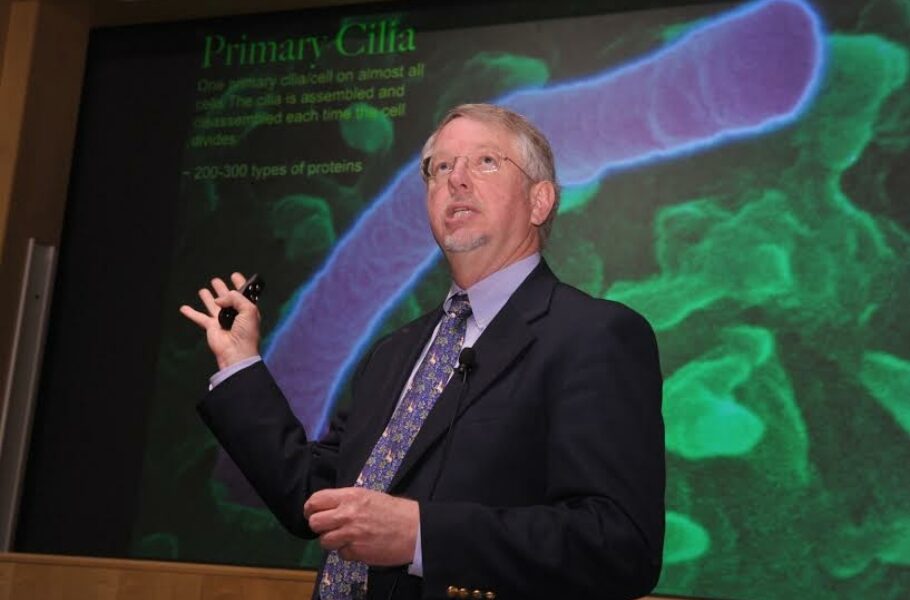
The cutting-edge research being conducted at Weill Cornell Medical College in Qatar (WCMC-Q) was showcased at the university’s Fourth Annual Research Retreat.
WCMC-Q faculty and students gathered on Saturday 25 January to give presentations about the research studies being carried out at the university in a wide range of fields, including breast and ovarian cancer, inborn genetic disorders, diabetes and cardiovascular disease.
The annual event is a chance for WCMC-Q investigators to share their findings with their counterparts within the scientific community in Qatar, and for attendees to learn more about the university’s ongoing mission to contribute to the burgeoning research environment in Qatar, and to target health issues most relevant to the regional and Qatari population.
Dr. Khaled Machaca, Associate Dean of Research at WCMC-Q, gave the welcome address at the event. He said: “The significant investments that Qatar Foundation has made in the WCMC-Q Research Program are beginning to bear fruit as illustrated by the presentations and papers from our scientists. Significant impact is obvious in area of critical importance to the health of the Qatari population such as monogenetic disorders, breast cancer, and diabetes. These studies are ushering in the era or precision medicine in Qatar.”
Dr. David Clapham, Professor of Cardiovascular Research and Professor of Neurobiology at Harvard Medical School, then made the keynote address, followed by presentations from WCMC-Q faculty.
Among many interesting talks and presentations, Dr. Karsten Suhre, Professor of Physiology and Biophysics, described the identification of a salivary biomarker for diabetes identified in the Qatari population. Dr. Lotfi Chouchane, Professor of Genetic Medicine, discussed specific genomics signatures for breast cancer patients in Qatar and the region, while Dr. Alice Aleem summarized ongoing studies aimed at identifying the genetic cause of several monogenetic disorders in Qatari families through genomics studies. Furthermore, Dr. Shahrad Taheri, Professor of Medicine, spoke about research gaps in the study of diabetes and obesity.
The event also featured a total of 92 poster presentations by research specialists, students and postdoctoral fellows relating the findings of projects conducted at the university over the past year.
WCMC-Q currently has 36 active research laboratories investigating diverse areas, ranging from the basic molecular and cellular processes through to translational, clinical and population-based studies. There are now 165 staff and faculty members at WCMC-Q engaged in research, and between July 2012 and June 2013 WCMC-Q faculty contributed to 133 academic publications. In 2013, WCMC-Q research projects won grants from the 6th cycle of Qatar Foundation’s National Priorities Research Program (NPRP) totaling more than $10.3 million.
Dr. Javaid Sheikh, Dean of WCMC-Q, said: “The annual research retreat is a great opportunity for us to see and appreciate the groundbreaking work taking place in our laboratories here at WCMC-Q. Our talented students, research specialists and postdoctoral fellows, supported by members of our faculty, are doing great work and making a fantastic contribution towards our ambition to establish WCMC-Q as a center of excellence in research in the region.
Their hard work and ingenuity, guided by the aspirations of Qatar Vision 2030, have led to many exciting new discoveries, positioning WCMC-Q at the very forefront of medical research and increasing our understanding of serious conditions like cancer, diabetes and cardiovascular disease that affect people in Qatar and all over the world.”
The event closed with the announcement of awards for the most accomplished poster presentations in three categories. First place in the student category was won by Ahmad Almeer for his poster about the bone properties of genetically modified mice, while first prize in the research specialist category was won by Dr. Divya Viswanathan for a presentation about glandular cancer tumors. First place in the postdoctoral fellow category was scooped by Dr. Rawad Hodeify for his poster on the trafficking of a protein critical for cell function.
Best Poster Presentation Award Winners – Full Results
Category 1 - Students
1st Ahmad Almeer - Characterisation Of The Bones of Crtap Knockout Mice, A Model of Type Vii Oi
2nd Perola Lamba - Epigenetic Modification In Senescent Chemotherapy Surviving Acute Myeloid Leukemia Cells
3rd (a) Mostafa Naguib - Complex Chromosomal Rearrangements As A Mechanism for Neurodegeneration
4th (b) Muhammad Panhwar - Investigating the Trafficking Of Mutant (Missense E354Q) Gastric Inhibitory Peptide Receptor (Gip-R) and Its Possible Role In the Pathogenesis of Insulin Resistance
Category 2 – Research Specialists
1st Dr. Divya Viswanathan - Role of calreticulin in the regulation of long non-coding RNA, MALAT-1, expression in mouse adenocarcinoma cells
2nd Dr. Susanne Awad - Generic results for the effectiveness of medical male circumcision as an HIV intervention
3rd Dr. Neha Goswami - Comparison of Mass Spectrometry Methods for Tandem Mass Tagging Analysis
Category 3 - Postdoctoral Fellows
1st Dr. Rawad Hodeify - Functional role of the C-terminus of Orai1 in its trafficking in mammalian cells
2nd Dr. Rashmi P. Kulkarni - To be or not to be: Mechanisms of regulation of Stim1 by its 3’UTR in breast cancer
3rd Dr. Sini Skariah - Identification of molecular mechanisms that regulate encystation in Toxoplasma gondii
- ILQ News -
Follow us on our social media channels:
![]() @ILQlive
@ILQlive
![]() @ILQlive
@ILQlive
![]() @ILoveQtr
@ILoveQtr
![]() ILoveQatar
ILoveQatar

You have successfully registered your account!
Please confirm your e-mail address by clicking on the URL sent to you.The e-mail usually arrives in 5-10 minutes.
How ajeeb was that!? Thanks for contributing to our community! Your post will appear after we take a quick look!